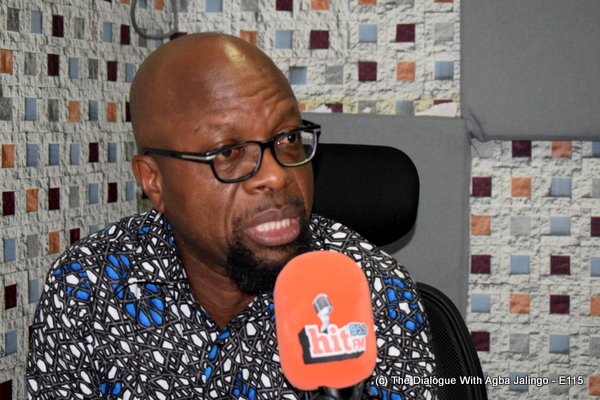By Margaret John and Patrick Obia
A former attorney general of Cross River State and a gubernatorial aspirant of the Social Democratic Party, Mr. Eyo Ekpo has said that the state will not achieve its full potential until Nigeria as a country stops being a federation only in nomenclature.
Ekpo made the assertion while speaking as a guest on ‘The Dialogue with Agba Jalingo’ a radio program on Hit FM monitored by CrossRiverWatch where he hinged on restructuring and the need for states to manage and control their own resources.
“The real question about Cross River and Nigeria ties in with the restructuring issue. We really will not achieve our full potential until we have a true federation in this country, until we find ourselves being able to manage and control our resources more, have a greater say in how our natural assets and our natural endowments are utilized and deployed for our own benefit,” Ekpo said.
Stressing on the point of restructuring, he cited the Tinapa project which he said had failed because, “no matter how much we were able to shout, the federal government and NPA (Nigerian ports authority) did what they wanted to do… The Calabar channel could not be dredged up to the designated port and customs said the goods coming in were fake and all that.”
Insisting that states “should have control over our own resources,” Mr. Ekpo argued that, “we can’t demand the attainment of Nigeria’s rightful place in the comity of Nations, without also demanding that we address the question of whether we are a federation of 36 states or a unitary state.”
He dismissed insinuations that the state is heading for destruction even though he criticized the agenda of the current administration which he said had veered off the plans set by preceding administrations.
Ekpo posited that the state had several development templates, but insisted that the building of cottage industries by the present administration cannot pass for an industrialisation drive. “The state has not been industrialised by this administration, we have actually been de-industrialized. The things we see here currently are not indices of industrialisation. When you bring in Wilmar, Unicem as it was and now Lafarge, that is industrialisation. You don’t build cottage industries and call it industrialisation.”
Furthermore, he said the state has always had a lot of human and natural resources with its civil service at one point termed the best in the country even as he hoped that there will be sincerity of purpose on the part of the leadership to chart a proper course for the future.
“We have been fortunate to have leaders who understood what governance is and who managed our resources pretty well,” he said.
Since You Are Here, Support Good JournalismCrossRiverWatch was founded on the ideals of deploying tech tools to report in an ethical manner, news, views and analysis with a narrative that ensures transparency in governance, a good society and an accountable democracy. Everyone appreciates good journalism but it costs a lot of money. Nonetheless, it cannot be sacrificed on the altar of news commercialization. Consider making a modest contribution to support CrossRiverWatch's journalism of credibility and integrity in order to ensure that all have continuous free access to our noble endeavor. CLICK HERE |
New Feature: Don't miss any of our news again.Get all our articles in your facebook chat box.Click the Facebook Messenger Icon below to subscribe now
Text Advert by CRWatch :Place Yours

Will You To Learn How To Make Millions Of Naira Making Special Creams From Your Kitchen?.Click Here
Expose Your Business And Make More Sales. Advertise On CrossRiverWatch.com Today



Leave feedback about this